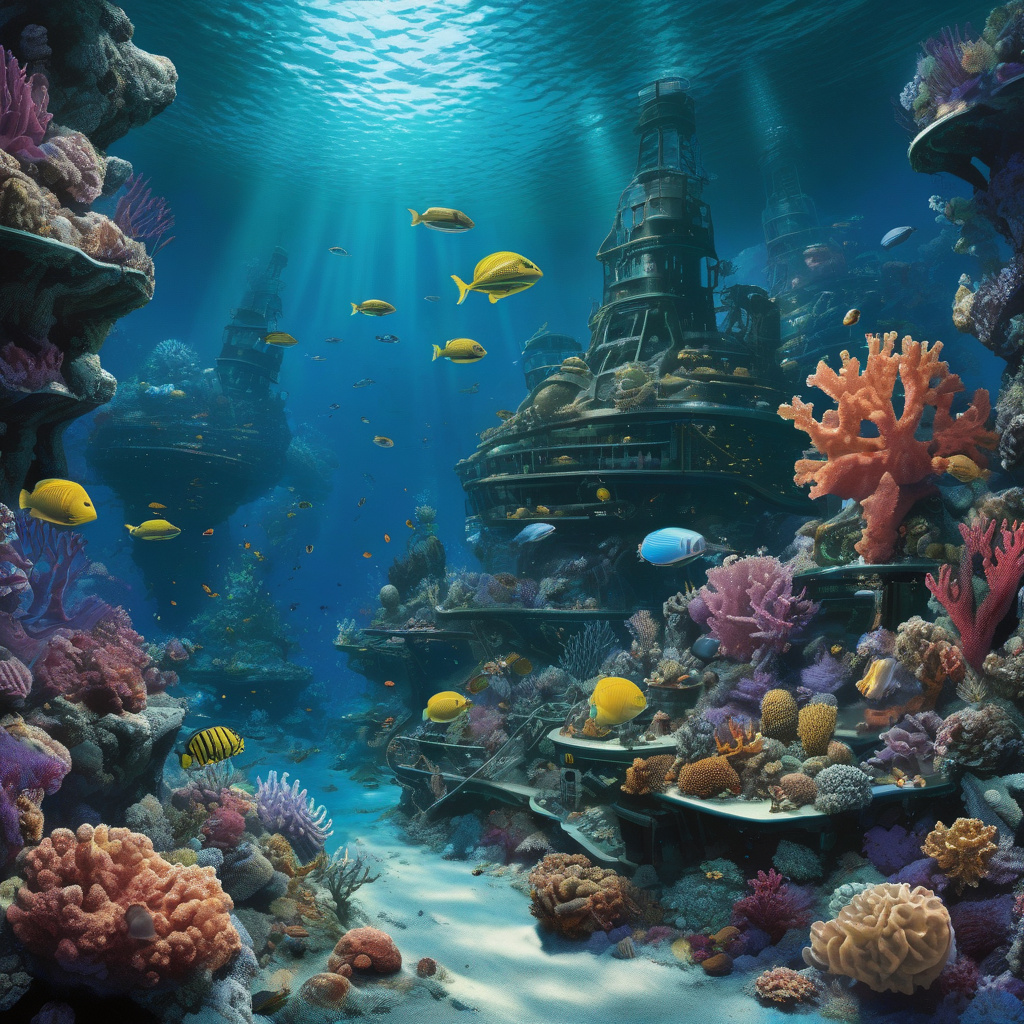Trump eyes seafloor minerals to rival China as experts warn of environmental fallout
Hidden beneath the depths of the world’s oceans lies a veritable treasure trove of minerals, coveted by nations seeking to secure their place in the global market. Among those eyes are President Trump’s, who has set his sights on exploiting these seafloor resources to rival China’s dominance in the mineral sector. While the potential economic benefits are enticing, experts warn of dire environmental consequences that could result from such exploitation.
The seafloor is rich in valuable minerals such as copper, cobalt, nickel, and rare earth elements. These resources are crucial for the production of modern technologies, including smartphones, electric vehicles, and renewable energy systems. As the demand for these minerals continues to soar, countries around the world are looking to secure a steady supply to fuel their industries.
China currently leads the race in seafloor mining, with the country investing heavily in deep-sea exploration and extraction technologies. President Trump, however, aims to challenge China’s monopoly by ramping up the United States’ efforts in seafloor mining. The Trump administration has taken steps to streamline the permitting process for deep-sea mining projects and has shown a keen interest in expanding America’s presence in this sector.
While Trump’s push for seafloor mining may promise economic gains and bolster the country’s strategic position, environmentalists and scientists have raised concerns about the potential repercussions of such activities. The process of extracting minerals from the seabed can have devastating effects on marine ecosystems, including habitat destruction, biodiversity loss, and the release of harmful chemicals into the water.
One of the biggest environmental risks associated with seafloor mining is the stirring up of sediment plumes that can smother marine life and disrupt fragile ecosystems. Additionally, the noise and light pollution generated by mining operations can disturb marine species, including deep-sea creatures that are still largely unknown to science. These disruptions could have far-reaching consequences for ocean health and biodiversity.
Furthermore, the chemicals used in the extraction process, such as sulfuric acid and hydrogen peroxide, can leak into the surrounding water and pose a threat to marine organisms. The potential for accidents and spills during mining operations also raises concerns about the long-term health of the oceans and the communities that depend on them.
As countries like the United States and China race to exploit the riches of the seafloor, it is essential to strike a balance between economic interests and environmental protection. Sustainable mining practices, strict regulations, and comprehensive environmental impact assessments are crucial to mitigate the negative effects of deep-sea mining.
In the pursuit of mineral resources, we must not forget the importance of preserving the health and integrity of our oceans. Only by taking a responsible and cautious approach to seafloor mining can we ensure a sustainable future for both our economies and the marine environment.
#SeafloorMining, #EnvironmentalImpact, #DeepSeaExploration, #SustainablePractices, #OceanHealth












